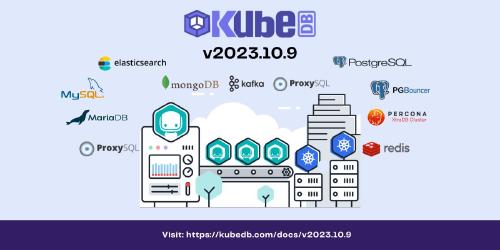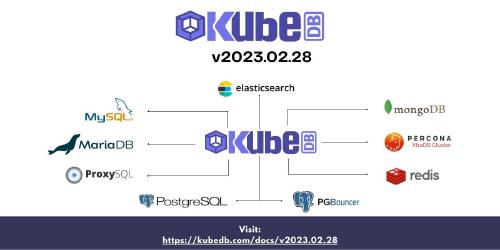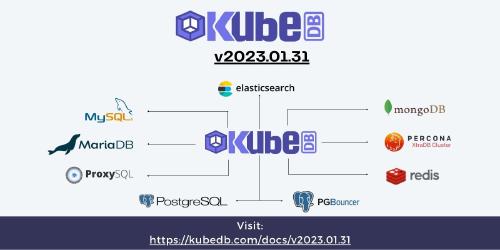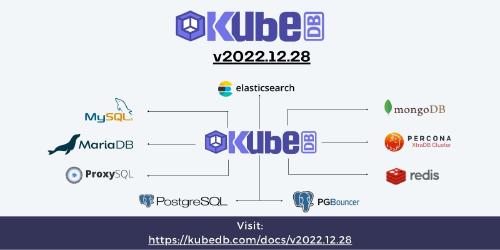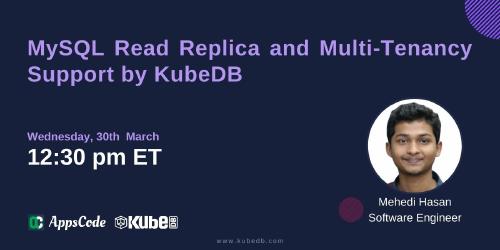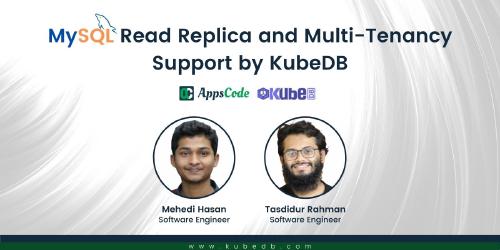KubeDB
Run Production-Grade Databases on Kubernetes
arrow_forwardStash
Backup and Recovery Solution for Kubernetes
arrow_forwardKubeVault
Run Production-Grade Vault on Kubernetes
arrow_forwardVoyager
Secure Ingress Controller for Kubernetes
arrow_forwardConfigSyncer
Kubernetes Configuration Syncer
arrow_forwardGuard
Kubernetes Authentication WebHook Server
arrow_forwardKubeDB simplifies Provisioning, Upgrading, Scaling, Volume Expansion, Monitor, Backup, Restore for various Databases in Kubernetes on any Public & Private Cloud
- task_altLower administrative burden
- task_altNative Kubernetes Support
- task_altPerformance
- task_altAvailability and durability
- task_altManageability
- task_altCost-effectiveness
- task_altSecurity

A complete Kubernetes native disaster recovery solution for backup and restore your volumes and databases in Kubernetes on any public and private clouds.
- task_altDeclarative API
- task_altBackup Kubernetes Volumes
- task_altBackup Database
- task_altMultiple Storage Support
- task_altDeduplication
- task_altData Encryption
- task_altVolume Snapshot
- task_altPolicy Based Backup

KubeVault is a Git-Ops ready, production-grade solution for deploying and configuring Hashicorp's Vault on Kubernetes.
- task_altVault Kubernetes Deployment
- task_altAuto Initialization & Unsealing
- task_altVault Backup & Restore
- task_altConsume KubeVault Secrets with CSI
- task_altManage DB Users Privileges
- task_altStorage Backend
- task_altAuthentication Method
- task_altDatabase Secret Engine

Secure Ingress Controller for Kubernetes
- task_altHTTP & TCP
- task_altSSL
- task_altPlatform support
- task_altHAProxy
- task_altPrometheus
- task_altLet's Encrypt

Kubernetes Configuration Syncer
- task_altConfiguration Syncer

Kubernetes Authentication WebHook Server
- task_altIdentity Providers
- task_altCLI
- task_altRBAC
RECENT NEWS/BLOG
13 OctAnnouncing KubeDB v2023.10.9
byMehedi HasanWe are pleased to announce the release of KubeDB v2023.10.9 . This post lists all the major changes done in this release since the last release. The release includes - Remote Replica for PostgreSQL & MySQL ⇒ One of the major feature of this release , Now you can replicate PostgreSQL and MySQL across cluster using remote replica. OpenSearch hot-warm-cold cluster ⇒ resource optimization using different hardware profiles Kafka OpsRequest ⇒ Day2 operations for KubeDB managed Kafka CLI ⇒ Generate Remote Replica Config Find the detailed changelogs HERE .
6 MarSee More arrow_forwardAnnouncing KubeDB v2023.02.28
byMehedi HasanWe are pleased to announce the release of KubeDB v2023.02.28 . This post lists all the major changes done in this release since the last release. The release include new features Combined PEM Certifiacte Postgres StandAlone to High Availibility, Acme Protocol based certificate support for ProxySQL & PgBouncer and new verisons for MySQL:8.0.32 , 5.7.41 , OpenSearch 2.0.1 , 2.5.0 , Redis: 6.0.18,6.2.11,7.0.9. You can find the detailed changelogs here .
- Webinar New






